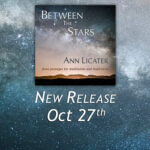From Background Music to Orchestral Pieces To compose the soundtrack for the action role playing-game God of War, Emmy award-winning composer Bear McCreary went on an epic Icelandic journey. After spending time walking across Nordic glaciers, mountains, and waterfalls, McCreary recorded Icelandic choir voices – including Faroese throat singer Eivør Pálsdóttir – and used Norwegian and Swedish musical instruments – some actually dating back to the 1300s – to create one of the most popular, epic, complex, and immersive orchestral video game soundtracks of all time. Today, games like God of War, L.A. Noire, Halo, and Skyrim exemplify the epic triumph of orchestral soundtracks in next-gen gaming.
There used to be a time in video game history when soundtracks weren’t considered as important as the graphics, gameplay, characters, environment design, or plot. That time has long since passed. Ever since the pixelated RPGs of yesteryear started taking the task of telling stories seriously, soundtracks have increased in complexity and production value, ultimately towards crafting a more immersive environment for the player. This has resulted in video games soundtracks sometimes costing as much time, money, and effort as the soundtracks to blockbuster Hollywood films. “It’s not just about personal preference; we had to make sure everything made sense with the music from the previous games in the series,” explains Halo 5 composer Kazuma Jinnouchi. “We spent 10 days recording at Abbey Road studios with a 96-piece orchestra, on top of electronic instruments that I programmed.”
It’s not surprising that a game in the Halo series would entail such orchestral production. The dramatic “Halo” sound, which Classic FM calls one of the most popular soundtracks in video game history, has consistently developed to effectively reflect the themes, icons, and stories contained in the series over the years. Along with DOTA 2 – another game scored with the help of an orchestra – the Halo games have become huge enough to actually dominate global Esports, with both commanding separate, million-dollar Esports leagues of their own. Between sponsorships, prize money, merchandising, downloads, and global viewership, a guide to Esports by Ladbrokes reveals how the industry is well on its way to being worth over a billion dollars this year. It should come as no surprise then that Esports teams like Team Liquid have collectively earned around $24 million, while individual athletes like Kuro Takhasomi have made over $4 million in prize money. While several factors have led to the current success of the global Esports industry, there is no doubt that the orchestral and cinematic nature of today’s epic video game soundtracks have an irreplaceable role in popularizing million-dollar games.
Meanwhile, at the other end of the spectrum are the smaller mobile or browser games which, with or without an orchestra, have managed to use their soundtracks in making their non-traditional gaming mediums as immersive as their PC or console counterparts. We’ve previously listed some of these mobile/browser games, including Fallen London, Canabalt, and the acclaimed Monument Valley which has won the BAFTA Games Award under the Mobile & Handheld category. While not as celebrated as the aforementioned Esports giants, these mobile games have the distinct advantage of an inherently intimate and intuitive gaming medium – the smartphone touchscreen – to carve their own significant niche in the art of video game music scoring and storytelling. Whether on your phone, your laptop, or the giant screens of the world’s most prestigious Esports arenas, musicians have elevated and will continue to elevate video game music to newer heights and more immersive depths.




Dick, I really loved this article, thank you for taking the time! You would love the soundtrack to the game Journey, which was composed by my friend Alex Wintory… It is sublime!
Hi, Beth… THANKS for the feedback… I thought it was a pretty fair article as well… have a FINE DAY!!!